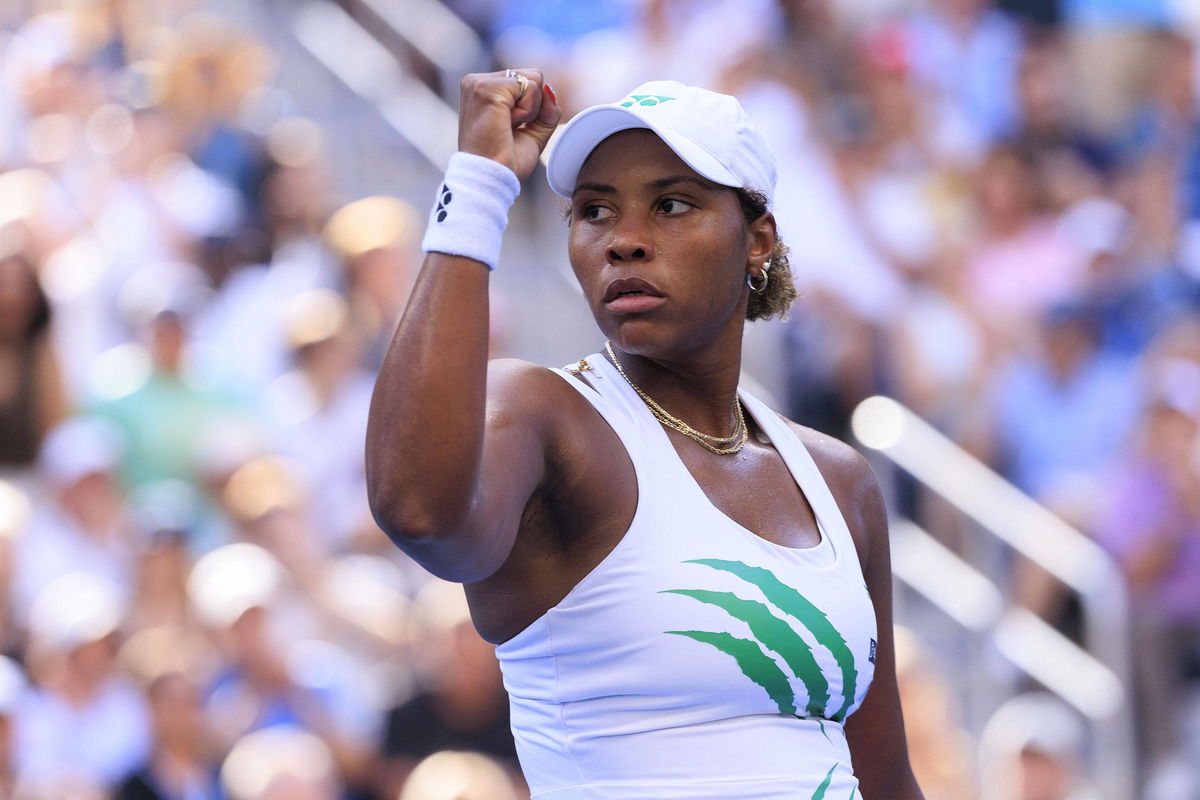
Imago
August 31, 2025, Flushing Meadows, New York, USA: Taylor Townsend reacts after winning a point in the tiebreaker during a match against Barbora Krejcikova on Day 8 of the 2025 US Open at USTA Billie Jean King National Tennis Center on Sunday August 31, 2025 in the Flushing neighborhood of the Queens borough of New York City. JAVIER ROJAS/PI Flushing Meadows USA – ZUMAp124 20250831_zaa_p124_104 Copyright: xJavierxRojasx

Imago
August 31, 2025, Flushing Meadows, New York, USA: Taylor Townsend reacts after winning a point in the tiebreaker during a match against Barbora Krejcikova on Day 8 of the 2025 US Open at USTA Billie Jean King National Tennis Center on Sunday August 31, 2025 in the Flushing neighborhood of the Queens borough of New York City. JAVIER ROJAS/PI Flushing Meadows USA – ZUMAp124 20250831_zaa_p124_104 Copyright: xJavierxRojasx
This year’s US Open still lingers in memory. Aryna Sabalenka defended her crown, Carlos Alcaraz slayed his hard-court demons, yet one clash stole the spotlight. Taylor Townsend, who is Black, battled past 2017 French Open champion Jelena Ostapenko 7-5, 6-1 before a heated post-handshake exchange. Townsend revealed Ostapenko accused her of having “no class” and “no education,” later questioning whether there were “racial undertones” to the confrontation.. Though Ostapenko later apologized, Townsend has now spoken again, sharing that the disrespect she faced stretched back before their post-match brawl even began, making the controversy an even sharper wound in an otherwise career-defining tournament run.
Watch What’s Trending Now!
Taylor Townsend has never been one to back down, and in a recent episode of the Pivot Podcast, she opened up about the sting of disrespect she endured during her heated US Open clash with Jelena Ostapenko. The American star, who reached the fourth round in singles and made the doubles final, offered an unfiltered look at her mindset during the moment that ignited headlines.
“Honestly, in that moment, I just thought about how I wanted to show up, like Taylor. I wasn’t raised like ‘we ain’t raising no punks’, my dad always said that,” she revealed. “So it’s like, to me, when she said it, I was just like, you can see my face because if you go to the video, you see I am like ‘good match’ and then she starts talking and I was like, wait, hold on, what?”
Townsend’s candor shone through as she explained that her calm response was anything but accidental, it was deliberate, shaped by experience. She didn’t just dwell on Ostapenko’s barbed comments but reflected on a broader pattern she had witnessed in tennis. “And one of the things I know about Tennis it’s a lot of smoke and mirrors. It’s a lot of this, but people are not about the action. I am just being real,” she said, pulling no punches. For Townsend, the clash with Ostapenko was not an isolated incident.
View this post on Instagram
In vivid detail, she described that previous match, one where her opponent repeatedly disrupted play and crossed lines of sportsmanship. “During the whole match, the girl is hitting the balls, two, three, four courts down, I have to go get it,” Townsend said. “She’s hitting balls at me, trying to hit me, just disrespectful the whole time. I beat her like two in two, she comes out to the handshake and she’s like ‘this little childish s— that you’re doing, it ain’t going to work in the WTA tour’ I said, who the f— are you talking to?” Townsend’s retelling dripped with intensity, giving listeners a clear window into the raw emotions of the moment.
Even the umpire sensed the tension, urging restraint. “The umpire was like Taylor no, Taylor no, cause she saw like I, she was like no, and I was just like, no,” Townsend recalled. “I allowed the disrespect from the court etiquette the whole time, but you’re not gonna disrespect once the match is over.” For her, there was a line that should not be crossed, and once the final point was played, the verbal jab became a trigger.
Yet Townsend revealed that she kept her composure because she knew even post-match actions could carry consequences. “But this incident played in my head because she was like don’t do anything, because you can still get defaulted, even after the match is over,” she explained.
That internal struggle was pivotal. Townsend admitted that those lessons shaped how she handled Ostapenko’s remarks on Arthur Ashe. “So that situation played through my head because I was like, even after there are residual consequences if I were to defend myself. In that moment, I realized you are mad, and I love it. Like, thank you so much,” she said. “And I realised the thing is, if you watch the match or if you go to that moment, she pulled out every stop.”
Townsend then painted a picture of Ostapenko’s desperation on court, breaking down the series of interruptions and tactics meant to disrupt her rhythm. “She took a medical time out, get her blood pressure checked, called the physio, in between the first and second set, went and took a three-minute bathroom break, like tried to do everything she could to break my rhythm,” she said. For Townsend, Ostapenko’s behavior was telling; it was a sign that her opponent could not handle being outplayed.
In the end, Townsend framed the incident as bigger than just words. It was about character, resilience, and refusing to be rattled. “And so I knew it’s like you are boiling over with because you like you are this mad that you lost, you can’t fathom in your brain that I beat you, and I was just like, you need to learn to take a loss better, you gotta do better at this because you do it often,” she concluded.
And while the US Open is now in the rearview mirror and the tour moves on to the Asian swing, Taylor Townsend’s voice remains powerful. Her words are a reminder that beyond the points, games, and sets, tennis is also about respect, and she’s making sure her message lands.
Taylor Townsend breaks the silence on rival’s post-US Open remarks
Taylor Townsend, in her recent CBS Sports appearance, opened up about her reaction to Jelena Ostapenko’s apology letter. Host Gayle King noted that the Latvian claimed English was her second language, and that she didn’t fully grasp the weight of the words she used. Townsend, however, handled the topic with striking maturity and composure.
She explained, “The thing is, I have compassion and understanding. I know and understand that it’s not her first language.” Townsend continued, “And I said this, I said that I don’t think that she really understands the words that she said and what they mean to us and our culture and where we are in America. She doesn’t understand the magnitude of what those words mean and the weight behind them.”
Her perspective was measured, rooted in empathy, yet there was no mistaking her underlying strength. Gayle King sensed it too, noting there was a ‘but’ coming, and Townsend didn’t hold back.
“But then, like I said, I was like, ‘I don’t tolerate disrespect.’ And especially when I treat you with respect and sportsmanship, and I’m honoring the game, don’t disrespect me.” The words hit hard, a reminder that grace and accountability can coexist.
As the dust settles, Townsend’s message stands tall: respect is non-negotiable. Tennis, with its traditions and spirit, deserves better, and players like her are determined to protect that standard. Disrespect may sting, but Townsend has shown she will never let it define her.


